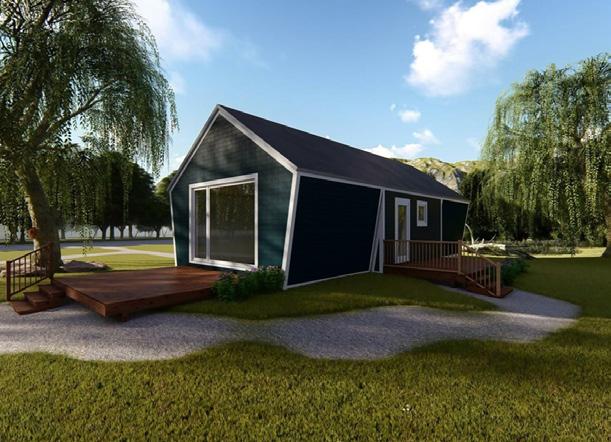
6 minute read
AITKEN FRAME HOMES
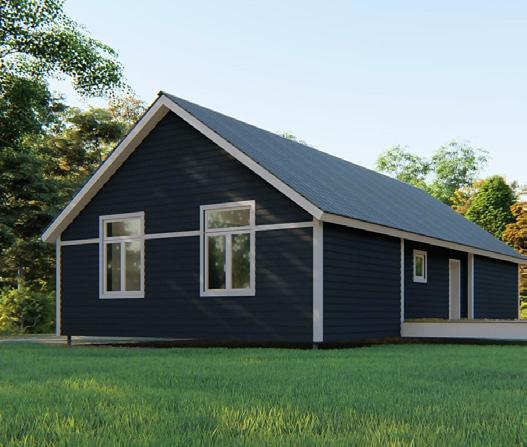
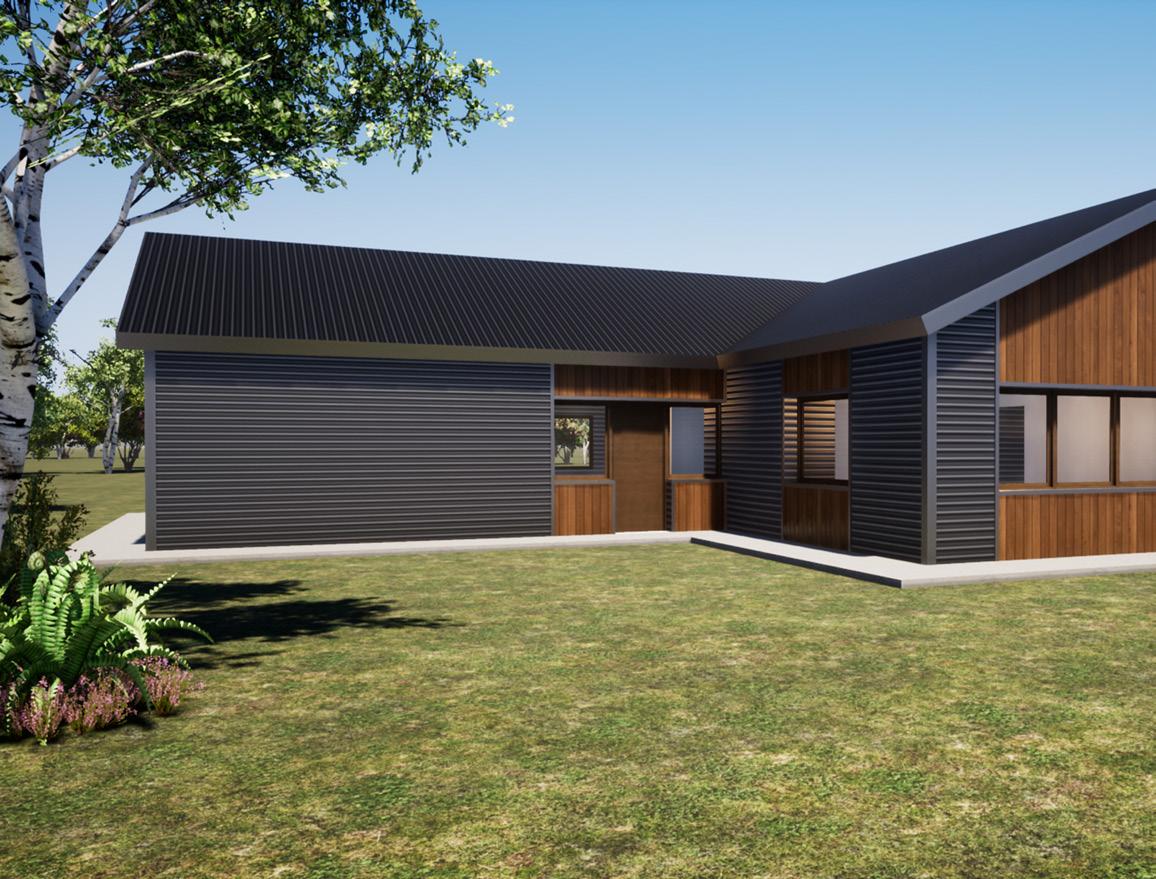
Advertisement
A new framework
Lower-cost housing with an environmental conscience by a company led and supported by women? Tell us more…
WORDS MONIQUE BALVERT-O’CONNOR / PHOTOS DAHLIA KATZ + SUPPLIED
SheEO is changing the parameters of Kim Aitken’s world. The Irish-born Canadian resident is about to launch a New Zealand arm of her business, Aitken Frame Homes, currently only in Canada and Ireland. Helping to make her business dream a reality is the SheEO network, which provided funding for Aitken Frame Homes in Canada and is now assisting its expansion into Aotearoa.
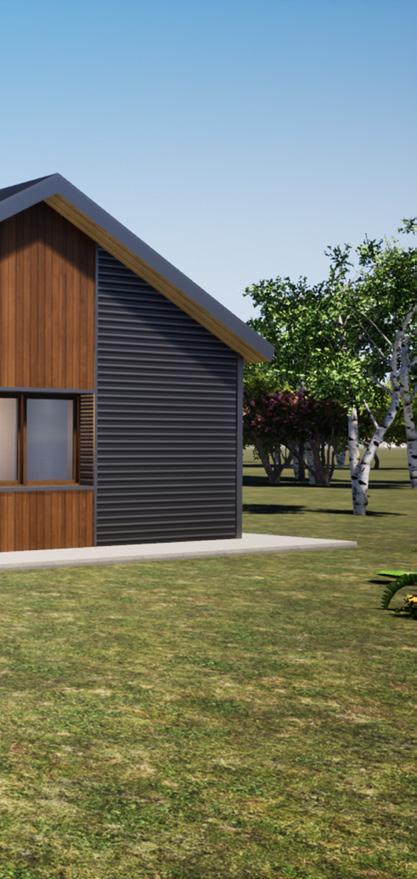
What can’t be overstated in this exciting journey, says Kim, is the value of the connection she now has to this global organisation that gathers women (dubbed SheEO Activators) together to fund women-led businesses (SheEO Ventures) with a focus on solving the world’s biggest problems. That’s problems such as poverty, inequality and the state of the environment. “I also have many deep friendships that have arisen out of SheEO,” she adds.
It was only in 2019 that Kim learned about the celebration and development of female innovators that is SheEO’s raison d’être. She successfully pitched her company – which she describes as “a new business with an incredible ability to execute” – into a Dragon’s Den-like situation. Now an owner of a SheEO Venture, she’s used the funds to expand its operations, and New Zealand is part of that growth picture. When Kim arrived in New Zealand last year to test the waters for her proposed expansion, she plugged straight into the SheEO New Zealand network and has already made “incredible” contacts. She says Kiwis can prepare to welcome a company with a focus on high-efficiency housing at less than the cost of a traditional code-minimum home.
“I’ve been drawn by how excited New Zealand people are for an attainable, sustainable housing solution,” says Kim, who believes her company can positively impact the global housing shortage. Aitken Frame Homes has a patent that extends across 153 countries, which allows the company to effect change on a global level. Tauranga will be its New Zealand headquarters, a decision informed by guidance from the Canadian trade commissioner, who proposed the Bay of Plenty as an area of growth where innovation is supported.
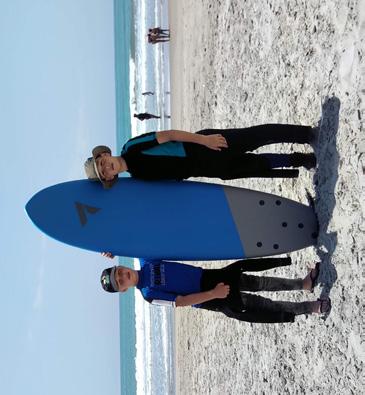
Kim pitches her business on Canadian Dragon’s Den.

The decision to come to New Zealand was based in part on the suitability of systems and compatibility, says Kim. Selected countries must have governments that support and recognise there’s a housing need. There are climatic drivers too, as the homes are uniquely engineered to withstand snow, wind and earthquakes, for example. Existing networks within the country are also a must, as these allow the business groundwork to be carried out before the company launches into the market; systems are already in place to meet the anticipated high demand.
Kim, who has a degree in product design engineering, says Aitken Frame Homes offers the world’s first hybrid building system that combines the benefits of prefabrication with the flexibility of on-site construction. “Our houses are traditional-style with a unique structure. Our innovation is the structure itself. We offer engineered frames that combine the floor, walls and roof with engineered connections. These form a series of ribs, which are set on a steel, wood or concrete foundation. Our rib system comes flat packed and spreads out vertically, accordian-style.”
The speed of this type of construction allows for rapid builds, significantly reducing trade costs. All the frame systems will be manufactured locally in facilities already producing common components, so supply chains and procurement policies can be utilised at minimal overhead cost for customers. Every part will be manufactured and assembled in New Zealand by local trade professionals, and Kim says time will be spent training architects, designers, builders and engineers in the use of the company’s systems.
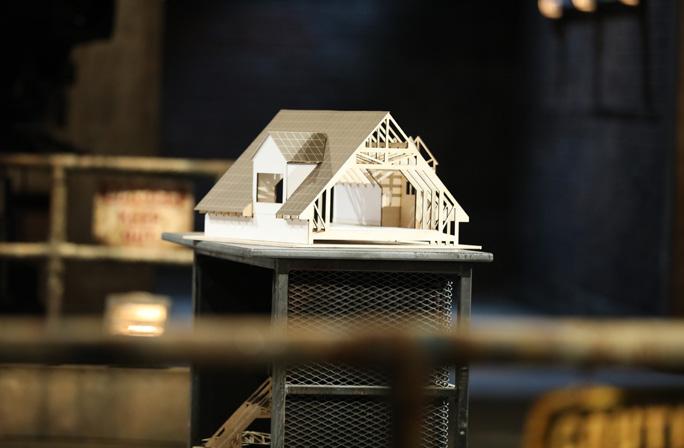
“From there, our presence can grow organically on a local level, as demand grows. We typically contract with 12 to 16 people per build and will grow the New Zealand company to include financial, operational and technical staff.” In Canada, Aitken Frame Homes are about 20 percent less expensive than traditional homes. “A percentage of this is due to how we’re able to provide a super-insulated envelope at a reduced cost,” says Kim. “The insulation requirements in New Zealand are less and we’ll be far above building code with our system.” “ O U R I N N O VAT I O N I S T H E S T R U C T U R E I T S E L F. W E O F F E R E N G I N E E R E D F R A M E S T H AT C O M B I N E T H E F L O O R , WA L L S A N D R O O F W I T H E N G I N E E R E D CONNECTIONS.”

2018
Fast times
It’s been an amazing three years for Aitken Frame Homes, going from strength to strength, gathering support and funding.
Aitken Frame Homes launches in Ontario, Canada
2019 Kim Aitken becomes a funded SheEO Venture
Aitken Frame Homes appears on television’s Dragon’s Den
2020 Aitken Frame Homes launches in New Zealand
Taking the mic after being announced as a 2019 SheEOfunded Venture in Toronto.
She says initial information suggests New Zealanders purchasing an Aitken Frame home will be able to do so at 10 to 12 precent less the average price of a traditional home. This is in line with her company’s goal to provide houses at a price point attainable to the majority of the mid-market.
Aitken Frame Homes also ticks many environmental boxes. The homes can be built without the use of concrete and constructed without foam, instead using sustainable insulation materials. The houses are designed to be easy to maintain with low operating costs.
Kiwis shouldn’t have to wait too long to see Aitken Frame Homes in the flesh, as Kim anticipates the first builds will be underway by the middle of the year. At present, she’s looking for a land partner(s) for the first build; as an Irish citizen and Canadian resident, buying land herself isn’t an option.

months a year here with her sons, aged eight and nine. There’ll be play alongside the work, which for Kim takes the form of surfing with the children, playing women’s rugby and running on the beach.
The prospect thrills this enterprising engineer. “I’m so excited to be expanding into New Zealand, a country we love,” she says. “It’s incredible to be in this position of bringing a ‘local’ solution to the market.”










